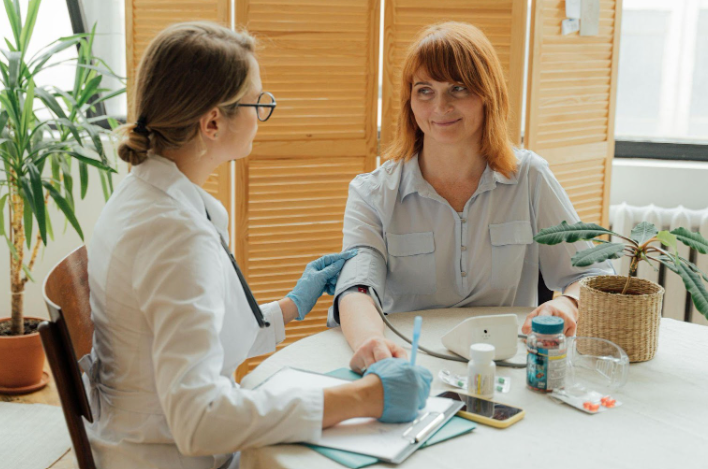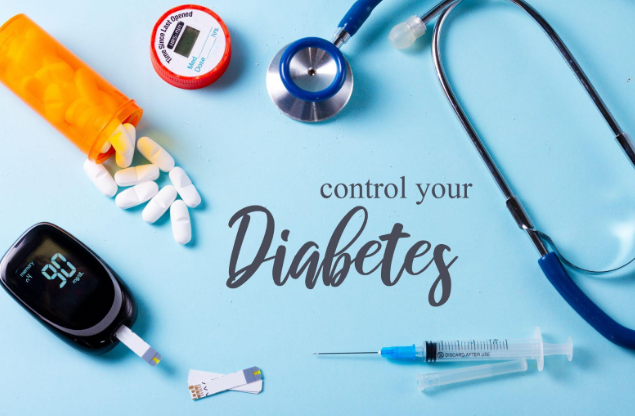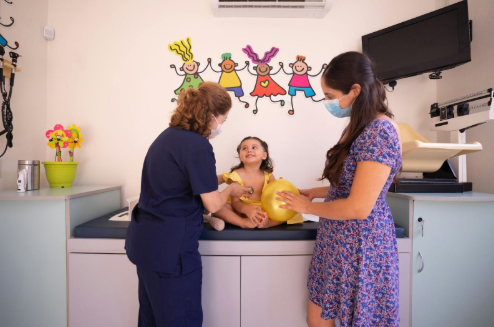How Preventive Pediatric Care Supports Healthy Teen Development
How Preventive Pediatric Care Supports Healthy Teen Development

Teenage years are an important time for development in a variety of areas, such as social, emotional, and physical changes. Preventive pediatric care focuses on early detection, proactive screenings, and ongoing support that address the physical, emotional, and behavioral changes that come with adolescence. With consistent preventive visits, your teen can build their foundation for lifelong well-being and independence.
How Preventive Pediatric Care Supports Your Teen
This care emphasizes building a partnership between your teen, their family, and healthcare providers, creating a foundation of trust and communication. Here are some of the areas on which this care supports your teen’s journey:
Tracking Physical Growth and Pubertal Milestones
Preventive pediatric care closely tracks teens' growth by monitoring height, weight, BMI, and signs of puberty. These assessments help identify early signs of conditions like growth hormone deficiency or abnormal puberty timing, allowing for prompt treatment that supports healthy development.
Comprehensive well-teen visits also assess musculoskeletal health and posture, which are important during growth spurts that may lead to scoliosis or sports-related injuries. These checks ensure timely referrals to specialists when necessary.
Age-Appropriate Vaccination and Immunity Strengthening
Maintaining up-to-date vaccinations against age-specific risks is an essential component of adolescent preventive care. These immunizations protect your teens and contribute to broader public health by limiting the spread of preventable diseases. The recommended immunizations include:
- Tdap Booster (Tetanus, Diphtheria, Pertussis): Given around age 11–12, this booster maintains immunity against three serious bacterial infections and is especially important as protection from childhood doses wanes.
- HPV Vaccine: Typically administered between the ages of 11–12, this vaccine protects against strains of human papillomavirus that cause cervical, anal, and other types of cancer, as well as genital warts. Completing the series before exposure offers the strongest protection.
- Meningococcal Vaccines (MenACWY and MenB): These vaccines guard against multiple strains of meningococcal bacteria, a leading cause of bacterial meningitis and bloodstream infections in adolescents. Early adolescence is the standard time for the MenACWY vaccination, and depending on risk, a MenB series is added later in adolescence.
- Annual Influenza Vaccine: It is the flu shot that helps prevent severe complications from seasonal influenza, especially for teens with asthma, diabetes, or other underlying conditions.
Screening for Mental and Behavioral Well-being
Adolescent preventive care now includes structured mental health screenings to identify concerns early. Tools like the PHQ-9 help detect signs of depression, anxiety, and other mood disorders that often emerge during the teen years. Conversations with providers can also reveal challenges related to stress, academic pressure, or social and emotional struggles.
Incorporating mental health checks into routine visits allows you to make timely referrals to behavioral health specialists when needed. This early intervention supports emotional resilience and equips teens with coping skills essential for long-term well-being.
Nutrition, Lifestyle Counseling, and Chronic Disease Prevention
Adolescence brings increased nutritional and lifestyle demands driven by growth and hormonal changes. During preventive visits, providers offer practical guidance to support this critical stage. Teens are encouraged to follow a balanced diet that includes whole grains, lean proteins, fruits, vegetables, and essential nutrients like calcium for bone health and iron to support menstruation.
Daily physical activity for at least 60 minutes is recommended to strengthen the heart, muscles, and mental well-being. Sleep is also a focus, with advice on maintaining consistent schedules and minimizing screen time to improve focus and mood. These habits lay the groundwork for long-term health and disease prevention.
Early Detection of High-Risk Health Conditions
These evaluations during routine care visits serve as powerful tools for early diagnosis and prevention of long-term health issues. They use tailored screenings to address conditions that often emerge during adolescence:
- Blood pressure monitoring to detect early signs of hypertension.
- Anemia screening, especially in menstruating teens, to guard against disorders affecting cognitive and physical performance.
- Visual and auditory checks to identify issues affecting learning or communication.
- Skin exams for moles or signs of sun damage, coupled with sunscreen guidance to reduce long-term cancer risk.
Coaching Teen Autonomy and Health Ownership
Teens are encouraged to take an active role in managing their health, including participating in appointments, following treatment plans, and maintaining personal hygiene. Within age-appropriate confidentiality guidelines, they are given space to discuss sensitive issues openly.
This approach builds confidence, improves communication, and strengthens health literacy, the key skills for managing care in adulthood. By promoting autonomy in a supportive setting, providers help them develop trust in the healthcare system and establish lasting wellness habits.
Addressing Social Determinants of Health
Advanced preventive care includes evaluation of external factors affecting teen wellness, like family dynamics, academic pressure, peer influence, socioeconomic stress, and access limitations.
These providers connect families to community resources for food security, mental health support, tutoring, or social engagement opportunities. Recognizing these broader influences offers a comprehensive approach to adolescent development.
Access to After-Hours and Telehealth Support
Modern pediatric preventive care offers flexibility through evening, weekend, and telehealth visits for non-urgent concerns.
This access makes sure that the teens and caregivers can address health needs, like mild illnesses, vaccination updates, or mental health check-ins, without delay or disruption, supporting consistent preventive care engagement.
Continuity of Care Through the Medical Home Model
Operating as a patient-centered medical home, preventive pediatric care delivers coordinated, continuous support across a teen’s journey.
They follow teens from early childhood through adolescence, delivering consistent medical history, tailored care plans, and smoother transitions to adult care. This continuity is linked to better health outcomes, higher
vaccination rates, and stronger patient-provider relationships.
What Makes Silver Pine the Right Choice for Your Teen’s Care?
At Silver Pine, we combine expert medical care with compassionate support tailored to your teen’s needs. We work closely with your family to guide your teen through every stage of development with consistent, personalized attention. Our flexible scheduling, including evenings, weekends, and secure telehealth visits, makes it easy for your teen to get care without missing school or disrupting your routine.
We use advanced technology like a secure patient portal so you can access records, test results, and communicate with us anytime. Our commitment to quality care has earned us award recognition, reflecting our focus on safety, evidence-based medicine, and your satisfaction.
If your teen’s annual checkup is coming up or you want to learn more about adolescent preventive care, we at
Silver Pine Medical Group, set the stage for your teen for a successful future.
Reach out to our pediatric provider today!











